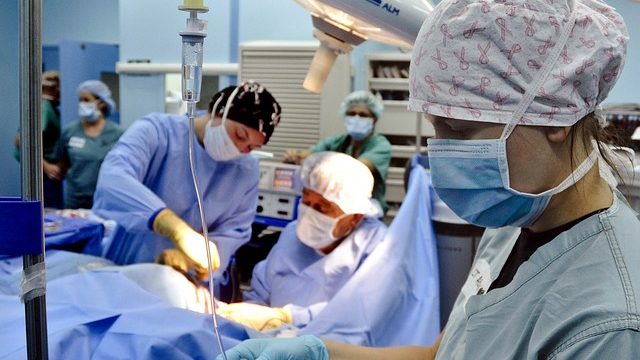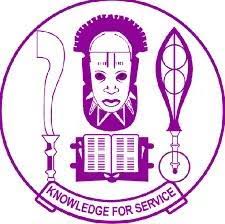
Medicine and Surgery is one of the most respected and diverse fields in the world. Beyond doctors and surgeons, there are dozens of other rewarding career paths within the medical world that contribute to saving lives, promoting health, and advancing medical knowledge.
Whether you are a medical student, aspiring healthcare professional, or simply exploring your career options, this comprehensive list will guide you through 70 careers related to medicine and surgery, their roles, and why they’re vital in healthcare today.
1. Medical Doctor (Physician)
A physician diagnoses, treats, and prevents illnesses and injuries. They can specialize in different areas such as internal medicine, pediatrics, or family medicine.
2. Surgeon
Surgeons perform operations to treat injuries, diseases, and deformities. They specialize in areas like general surgery, neurosurgery, orthopedic surgery, or cardiovascular surgery.
3. Anesthesiologist
Anesthesiologists administer anesthesia to patients during surgeries and monitor their vital signs to ensure safety.
4. Pediatrician
Pediatricians specialize in the medical care of infants, children, and adolescents.
5. Obstetrician/Gynecologist (OB/GYN)
OB/GYNs specialize in women’s reproductive health, pregnancy, and childbirth.
6. Cardiologist
Cardiologists diagnose and treat heart and blood vessel diseases.
7. Neurologist
Neurologists treat disorders of the nervous system, including the brain, spinal cord, and nerves.
8. Psychiatrist
Psychiatrists are medical doctors who diagnose and treat mental illnesses and emotional disorders.
9. Radiologist
Radiologists interpret medical images such as X-rays, MRIs, and CT scans to diagnose diseases.
10. Dermatologist
Dermatologists specialize in skin, hair, and nail disorders and treatments.
11. Pathologist
Pathologists study tissues, blood, and body fluids to diagnose diseases.
12. Oncologist
Oncologists diagnose and treat cancer patients through chemotherapy, radiation, or surgery.
13. Ophthalmologist
Ophthalmologists are medical doctors who specialize in eye care, surgeries, and vision correction.
14. Orthopedic Surgeon
Orthopedic surgeons treat musculoskeletal system issues, including bones, joints, and muscles.
15. Urologist
Urologists diagnose and treat conditions related to the urinary tract and male reproductive system.
16. Nephrologist
Nephrologists specialize in kidney care and treat conditions like kidney failure or hypertension.
17. Endocrinologist
Endocrinologists treat hormonal imbalances and disorders such as diabetes or thyroid disease.
18. Gastroenterologist
Gastroenterologists specialize in digestive system diseases, including the stomach, liver, and intestines.
19. Pulmonologist
Pulmonologists treat diseases related to the respiratory system, such as asthma and lung infections.
20. Rheumatologist
Rheumatologists treat autoimmune and inflammatory diseases affecting joints and muscles.
21. Hematologist
Hematologists diagnose and treat blood-related disorders, such as anemia and leukemia.
22. Immunologist
Immunologists specialize in diseases related to the immune system.
23. Plastic Surgeon
Plastic surgeons perform reconstructive and cosmetic surgeries to improve appearance or function.
24. Emergency Medicine Physician
These doctors provide immediate care in emergency rooms for life-threatening injuries or illnesses.
25. General Practitioner (GP)
GPs provide primary care, diagnosing and treating a variety of common medical conditions.
26. Forensic Pathologist
They perform autopsies and investigate causes of death in criminal and legal cases.
27. Public Health Physician
Public health doctors focus on disease prevention, health promotion, and community well-being.
28. Family Medicine Doctor
They offer comprehensive healthcare to individuals and families across all ages.
29. Geriatrician
Geriatricians specialize in healthcare for elderly patients, focusing on age-related conditions.
30. Sports Medicine Physician
Sports doctors treat injuries and medical issues related to sports and physical fitness.
31. Occupational Health Physician
They focus on the physical and mental health of employees in workplaces.
32. Medical Research Scientist
Medical researchers study diseases and develop new treatments or vaccines.
33. Clinical Pharmacologist
These specialists research and monitor the effects of drugs on humans.
34. Geneticist
Geneticists study hereditary diseases and provide genetic counseling to families.
35. Medical Laboratory Scientist
They conduct laboratory tests to aid in the diagnosis and treatment of diseases.
36. Physician Assistant (PA)
PAs work under physicians to examine patients, diagnose illnesses, and provide treatment.
37. Nurse Practitioner (NP)
Nurse practitioners offer advanced nursing care, often diagnosing and managing illnesses independently.
38. Registered Nurse (RN)
RNs provide hands-on patient care, monitor health, and assist physicians during treatments.
39. Surgical Nurse
Surgical nurses assist surgeons during operations and ensure sterile procedures.
40. Critical Care Nurse
They care for patients with life-threatening conditions in intensive care units.
41. Midwife
Midwives specialize in childbirth and women’s reproductive health.
42. Clinical Psychologist
They assess and treat mental health issues through therapy and counseling.
43. Physiotherapist
Physiotherapists help patients recover mobility and strength after injury or surgery.
44. Radiologic Technologist
They operate imaging equipment like X-rays and MRIs to assist in diagnoses.
45. Medical Sonographer
Sonographers use ultrasound machines to create images of internal organs.
46. Pharmacist
Pharmacists dispense medication and advise patients on proper drug use.
47. Medical Biochemist
They study the chemical processes within the human body to understand diseases.
48. Dietitian/Nutritionist
Dietitians design meal plans to improve patient health and manage conditions like diabetes or obesity.
49. Epidemiologist
Epidemiologists study how diseases spread and develop strategies for prevention and control.
50. Biomedical Engineer
Biomedical engineers design medical devices, prosthetics, and diagnostic tools.
51. Occupational Therapist
They help patients regain independence in daily activities after illness or injury.
52. Speech and Language Therapist
These specialists help patients with speech, language, and swallowing difficulties.
53. Respiratory Therapist
They treat patients with breathing or cardiopulmonary disorders.
54. Chiropractor
Chiropractors diagnose and treat musculoskeletal disorders, focusing on spinal alignment.
55. Clinical Microbiologist
They study bacteria, viruses, and fungi to diagnose infections.
56. Medical Illustrator
Medical illustrators create accurate images for textbooks, research, and medical education.
57. Health Information Manager
They maintain patient records and ensure data privacy in healthcare settings.
58. Hospital Administrator
They oversee hospital operations, manage staff, and ensure high-quality patient care.
59. Medical Equipment Technician
They maintain and repair hospital medical equipment such as ventilators and monitors.
60. Paramedic
Paramedics provide emergency medical care and transport patients to hospitals.
61. Clinical Data Analyst
They analyze healthcare data to improve patient outcomes and hospital efficiency.
62. Medical Sales Representative
Medical reps promote and sell pharmaceutical products or medical devices to healthcare facilities.
63. Health Educator
They develop programs that encourage healthy living and disease prevention.
64. Toxicologist
Toxicologists study the effects of chemicals, drugs, and toxins on living organisms.
65. Virologist
Virologists study viruses and develop vaccines or treatments for viral infections.
66. Immunization Specialist
They organize and administer vaccination programs in communities.
67. Medical Ethicist
Medical ethicists address moral dilemmas in healthcare, such as end-of-life decisions or genetic testing.
68. Biomedical Scientist
They research biological systems to understand diseases and discover new treatments.
69. Medical Writer
Medical writers produce scientific articles, research papers, and educational materials for healthcare publications.
70. Telemedicine Specialist
Telemedicine experts provide remote healthcare services using digital communication technologies.
Conclusion
The field of Medicine and Surgery is vast, diverse, and constantly evolving. From clinical practice to medical research, technology, and public health, there are numerous paths for those passionate about healthcare. Each of these careers plays a crucial role in improving lives, advancing science, and ensuring global well-being.
Whether you aim to become a doctor, researcher, or healthcare innovator, the possibilities in medicine are endless.
ALSO READ: 100 Rewarding Careers Related to Nursing Science
FAQs About Careers Related to Medicine and Surgery
1. What are the best-paying medical careers?
Some of the highest-paying careers include surgeons, anesthesiologists, cardiologists, and radiologists.
2. Do all medical careers require a medical degree?
No, not all. Some roles, such as nursing, physiotherapy, and medical laboratory science, require specialized degrees or certifications.
3. Which medical career is best for someone who loves research?
Careers like medical scientist, geneticist, or biomedical researcher are ideal for research enthusiasts.
4. What medical careers involve little or no patient contact?
Jobs such as medical writer, biostatistician, and pathologist involve minimal patient interaction.
5. Are medicine and surgery careers in high demand?
Yes, globally, healthcare careers remain among the most in-demand due to population growth and advancements in medical technology.





![FUTES-IYIN Cut Off Mark 2025/2026 is Out [All Courses] FUTES-IYIN Cut Off Mark 2025/2026 is Out [All Courses]](https://myeduplug.com/wp-content/uploads/2025/10/FUTES-IYIN-4.jpeg)
![FUADSI Cut Off Mark 2025/2026 is Out [All Courses] FUADSI Cut Off Mark 2025/2026 is Out [All Courses]](https://myeduplug.com/wp-content/uploads/2025/10/FUADSI-2.jpeg)
![FUMMSA Cut Off Mark 2025/2026 is Out [All Courses] FUMMSA Cut Off Mark 2025/2026 is Out [All Courses]](https://myeduplug.com/wp-content/uploads/2025/08/FUMMSA-1.jpeg)
![BUK Cut Off Mark 2025/2026 [All Courses] BUK Cut Off Mark 2025/2026 [All Courses]](https://myeduplug.com/wp-content/uploads/2025/01/BUK.jpeg)









